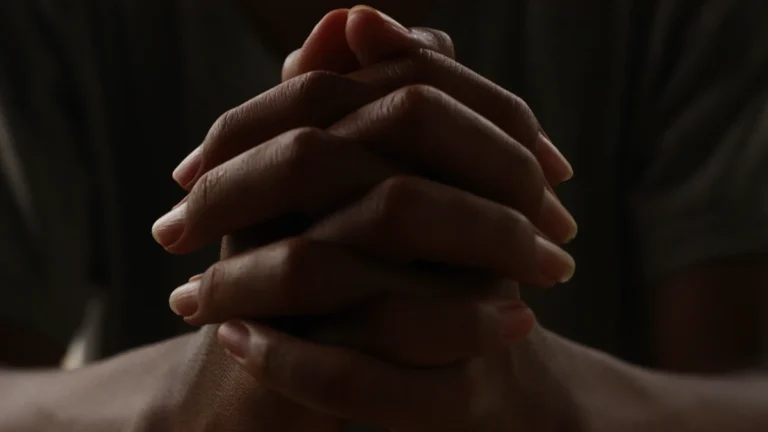A field guide for those unwilling to go quietly into collapse
My twenties were eaten alive by travel. Not the postcard kind with margaritas and inflatable flamingos, but the sort of travel that smelled of diesel, dust, and goat. Spring Break was for trust-fund toddlers in neon swimwear. Ibiza was for beer-fueled late bloomers with a knack for shallow tunes and shallower experiences. My crosshairs were pointed at Africa, the Middle East, and the less popular bits of Asia and the Americas—lands where comfort wasn’t just optional, it was laughable.
I took whatever got me forward: bush taxis belching exhaust, bicycles with more rust than metal, sand-scorched boots, donkey carts held together with wire. Comfort? Never on the packing list. Adventure was the only currency I cared about. I actually took pride in being able to sleep in a freshly plowed field.
I wandered through East African slums where sewage shared real estate with barefoot children. I listened to witch doctors in Benin City muttering incantations over bones and smoke. I slept on the cold concrete floors of Egyptian police stations and dined—if that’s the word—with Bedouins in Sudan on mystery meats that could have been goat, camel, or cousin. At a dusty border station, I was once stuck a whole night between Kenya and Tanzania because one side closed before the other, and I managed crossing only one. I slept on a rock, battling swarms of mosquitoes trying to make me their meal of the week. Welcome to reality with a sting.
This post first appeared in 2024, back when I still entertained hope that rational arguments might sway public sentiment. I’ve since remastered it—sharpened the edges, clarified the threat, and realigned it with the Grimwright ethos: use what works, discard the rest, and always—always—question the narrative. The date remains unchanged as a historical marker. The content does not.
Security was, let’s say, creative. Firefights erupted in the distance, militias set up impromptu checkpoints, and the odd knife waved in my direction kept me alert. Back in Austria, the well-fed asked how I survived without being shot, stabbed, or sold for spare parts. My answer never changed: don’t be an idiot, and don’t follow idiots. In poor countries, the idiots wear quieter clothes, but they’re still there, eager to ensnare you in their idiot schemes.
Or as Lieutenant Aldo Raine in Inglourious Basterds put it: “It behooves oneself to keep his wits.”
Flash your wealth in a poor country and you’re an idiot with a target painted on your back. Envy is the great innovator. People suddenly get very creative about transferring your possessions into their pockets—violence always on the menu. It isn’t right, but those people are struggling to get food on the table, and you’re being a pompous ass. That’s bound to produce hard feelings. Why manufacture problems you could so easily avoid?
Drink yourself blind in unknown streets and you’ve just auditioned for “Victim of the Month.” Drunkards are candy wrappers for predators. You don’t need a security lecture—you need a spine and some self-control. And if you think idiots are only lurking in Lagos or Khartoum, take a stroll through Vienna at three in the morning and watch the drunken aristocracy of stupidity stumble into taxis with their wallets dangling. Geography changes; idiocy does not.
That’s the point: fate is often dictated by your behavior, not divine intervention. A little extra foresight, a dab of seeing the world from another person’s viewpoint, works wonders and vastly improves your odds of making it out whole. Travel only magnifies this truth, but it applies everywhere, in every life.
Trying to forecast what may actually happen—not Hollywood’s fever dream of ninjas and conspiracies, but real-world outcomes—takes courage and relentless recalibration. Life delights in mocking your neat little plans. Stick too rigidly to your blueprint and you’ll snap like dry twigs when the winds shift.
Assumptions rot. Surprises multiply. And lurking in the wings, always, is the Idiot—that elemental force of chaos. Their sole function is to sabotage. The only viable response isn’t paranoia—it’s survivalism. And here I draw a line.
Preppers? They’re hobbyists of hysteria, digging bunkers, stockpiling beans, rehearsing Armageddon in their basements. Fine if it tickles them, but most of us lack the appetite for turning daily life into a doomsday rehearsal. Plus, they give up one of the most precious assets you have—stealth. Preppers are very flashy with their lifestyle. They are proud to be preppers, see others as inferior, and brag openly about their preparedness for doomsday. Guess who will be singled out first by the mob once the Capitol burns. Their rigidity makes them as brittle as those they fear.
A survivalist, by contrast, lives in reality, not in ego-theater. He strips events of sentiment, peels back illusions, and stares at the bare bones of the matter: does this affect me, how, and how do I withstand or recover? And he doesn’t flash his attitude towards anything at anyone not interested. He uses stealth to avoid irking those who may harm him. He blends in, adapts, and moves on toward greener fields. Silently, and with a keen eye.
That kind of clarity requires lightness. Humans, alas, are hoarders—of stuff, of friends, of stale ideas and sentimental daydreams. We drag these carcasses along, embalmed in nostalgia, weighing down our movements. To stay agile you must learn to jettison. Clear out your closets, yes—but also your mind. Ditch those comforting illusions, outdated loyalties, and sugary hopes. The future will demand a nimble mind, unchained from yesterday’s baggage.
Equip yourself. Learn skills outside your usual orbit. Cook. Mend. Repair machines and patch walls. Revive a half-forgotten language. Learn enough code to automate your own escape plan. When chaos shatters the frame you’ve built your life around, these odd, unglamorous competencies will be your wings.
As for Idiots, the best leash is consequences. Not debate—facts bounce off their skulls like pebbles off a tank. Defeat them in argument and they’ll baptize your logic as demonic trickery. Their self-image is porcelain perfection, untouchable by reason.
Expose them instead to the banquet of misery they’ve cooked. When their grandiose schemes bankrupt the economy, make them eat the inflated prices they’ve engineered. Let them live by the gospel they preach.
But here’s the rub: their consequences are yours, too. They burn the house down, and you’re still inside. The trick is to be better at surviving the fire—prepared before the flames lick the curtains. Idiots never prepare for reality. They already “know” everything, so planning is beneath them. They cling to their illusions even as the walls collapse, and suffer longer, deeper.
So sharpen your eyes. Watch for the tremors before the quake. When the herd stampedes into green dogma, abandoning proven tools like heating or gas engines, don’t follow them off the cliff. Keep that reliable ICE vehicle. Decline the state-subsidized heat pump. Learn how to fix what you own. Survival is pragmatism, not posturing.
And for God’s sake, don’t try to engineer the consequences yourself. That requires cooperation, consensus, common sense—currencies long devalued. In Idiot World, you are largely on your own, perhaps with a tiny circle of sane comrades. Not being an Idiot is a lonely posting.
Understand this: Idiots cannot be reformed. No sermons, no policy tweaks, no reform programs. Only reality can cure them—and reality is a merciless therapist. The process is so agonizing that almost no Idiot survives it intact. Most double down, hardening into fanaticism. They’ll rage, lash out, and often turn violent rather than admit they’ve been wrong all along. Better to keep your distance.
Idiots, by design, never see themselves as idiots. They are prophets in their own minds, saviors in waiting. The bureaucrat dismantling industry under the banner of “sustainability” thinks he is protecting the planet, not bankrupting families. The activist blocking ambulances for “awareness” imagines herself a saint, not an accessory to manslaughter. The banker inflating bubbles swears he is “unlocking prosperity,” not lighting the fuse on another detonation. Idiots survive on delusion like camels on water—they can wander years in the desert of failure without ever admitting they’re lost.
And this self-anointed sainthood makes them dangerous. You can reason with a thief—he wants money. You can reason with a tyrant—he wants power. But the Idiot believes he already has reason, morality, and destiny on his side. He won’t negotiate. He’ll drag you into his crusade and call it salvation. That’s why Idiots are the most destructive force in human history: not because they’re wrong, but because they’re convinced they’re right.
Tread carefully. Interactions with Idiots are minefields where even innocent remarks trigger explosions. Irony baffles them. Humor ricochets. If ever one begins to glimpse beyond his cage, an even more fanatical Idiot will drag him back into darkness.
Thus, safe spaces. Cancel culture. Trigger warnings. These are the padded cells Idiots construct, since they already “know everything” and therefore have no use for education. If your world is “complete,” why learn?
But reality doesn’t play by their script. She is a ruthless goddess. Revolutions have tested this. The English, French, and Russian upheavals all sought to remake man into a new species, chiseling society into their utopia. Individualism was irrelevant; only the collective mattered. And every one of these grandiose blueprints collapsed under the weight of their denial of reality.
Mao’s China is another case study in Idiot management. The Cultural Revolution was not policy; it was a nationwide psychosis. Students denounced their teachers, children betrayed their parents, neighbors ratted on each other for thought crimes. Ancient temples, priceless manuscripts, entire traditions—shattered in a frenzy of “progress.” Mao unleashed his Red Guards, an army of ideological Idiots, to purge the old world. And when the chaos threatened to consume even him, he quietly ordered the army to rein them in. The Red Guards were exiled to the countryside, broken against the grindstone of farm labor. Their slogans withered under the sun, and their utopia vanished into the mud.
The pattern repeats: the Idiots are indispensable in destruction, but intolerable in construction. Once the scaffolding is down and the palace lies in ruins, they become dead weight—useful only as fertilizer for the next order. History is merciless in this. It chews up its Idiots and spits them out, and yet every generation dutifully produces a fresh batch.
And perhaps the most exquisite demonstration of how Idiots are both indispensable and disposable is the Iranian Revolution. Khomeini needed them, of course. Every revolutionary does. Idiots are the stormtroopers of upheaval—loud, zealous, tireless in their delusions. They topple the old order with chants, fists, and blind rage. And once the palace gates were stormed and the Shah was out of town, the Idiots expected their paradise.
Except paradise is never on the menu. Once Khomeini had power, the Idiots became ballast. Their shrill demands and juvenile fantasies were a liability. He needed them gone. Providence—or perhaps the devil—delivered Saddam Hussein right on cue. The Iran–Iraq War arrived like a divine garbage disposal. Khomeini sent his zealots, the wide-eyed revolutionaries, into the minefields and trenches. They marched singing, flags in hand, straight into artillery fire. They thought they were martyrs. He knew they were expendable.
It was the perfect arrangement. They got their noble cause, their glorious death, their promised afterlife. He got their silence, and power cleansed of fools. That’s the way revolutions tidy up: they burn their Idiots as fuel for legitimacy.
The American Revolution, by contrast, didn’t try to sculpt a new man. It aimed to protect property, safeguard the individual, and construct a government suited to people as they are. That is why the U.S. Constitution still stands while other revolutionary scriptures have turned to dust. Its architects understood the inevitability of Idiots and fractured power deliberately, so resistance to idiotism could always find a foothold.
Big, centralized systems—Brussels, Moscow—are heaven for Idiots. Power pools, Idiots gather, dissent is crushed under their steamroller. But decentralization makes infestation harder. Power scattered close to the people leaves Idiots exposed. They crave “big solutions” because only there can they camouflage and metastasize.
Make no mistake: Idiocracy’s consequences are unavoidable. Systems will fail. Markets will seize. Savings will vanish. Hunger will revisit lands where it was thought extinct. Supply chains will snap and comforts will crumble. Unless you fancy hermitage in a cave, you will face it all.
And there will be no savior. No deus ex machina, no heroic leader descending from the clouds. Not Churchill, not even his ghost. Only blood, toil, tears, sweat—and your skillset, sharpened and ready.
Which brings me back to survivalism. Not fear, not hysteria, but readiness. Can you thrive in collapse? Can you repair, adapt, barter, endure? That’s the exam coming your way.
And while we’re at it—try to enjoy the ride. Gallows humor is a survival skill too. Tarantino’s Inglourious Basterds said it best through Aldo Raine: if a story is too good to be true, it’s because it isn’t. The same applies to the Idiots’ fairy tales of endless progress, green utopias, and technocratic salvation.
Churchill once stood in front of a nation and offered nothing but hardship and resolve. The Idiots offer us collapse and chaos wrapped in glitter.
So: what’s it going to be?




